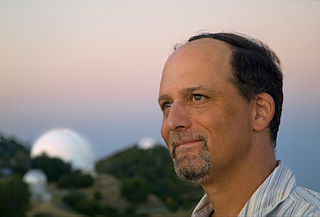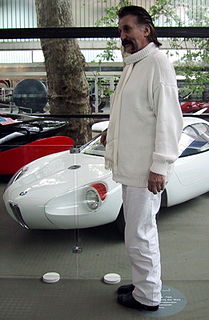A Quote by James Turrell
Planets' orbits are elliptical. It's a very pleasing shape.
Related Quotes
When Hubble was launched, it became clear very shortly thereafter that there was a problem with the optics.The mirror was not quite the right shape. And the one program that I had really been looking forward to doing with Hubble was studying outer planets in our solar system, the planets Uranus and Neptune.
Suns are extinguished or become corrupted, planets perish and scatter across the wastes of the sky; other suns are kindled, new planets formed to make their revolutions or describe new orbits, and man, an infinitely minute part of a globe which itself is only an imperceptible point in the immense whole, believes that the universe is made for himself.
The same thing is to be understood of all bodies, revolved in any orbits. They all endeavour to recede from the centres of their orbits, and were it not for the opposition of a contrary force which restrains them to and detains them in their orbits, which I therefore call Centripetal, would fly off in right lines with a uniform motion.
A major puzzle for which nobody has an answer is this: is there some size at which the planets change their nature from water-rich planets like Neptune, to rocky planets like the Earth? We have found two planets that are the size of the Earth in radius, but they are very close to their host star, so water on the surface would evaporate away.
The earth is round, all the heavenly bodies are round; they all move on round or elliptical orbits. This same image of circular globe-shaped mini worlds orbiting around each other follows us right down to the microcosmos. We are even aroused by round forms in species propagation related eroticism. Why should I join the straying mass who want to make everything angular? I am going to pursue Galileo Galilei's philosophy: my world is also round.
Some things, like the orbits of the planets, can be calculated far into the future. But that's atypical. In most contexts, there is a limit. Even the most fine-grained computation can only forecast British weather a few days ahead. There are limits to what can ever be learned about the future, however powerful computers become.







































